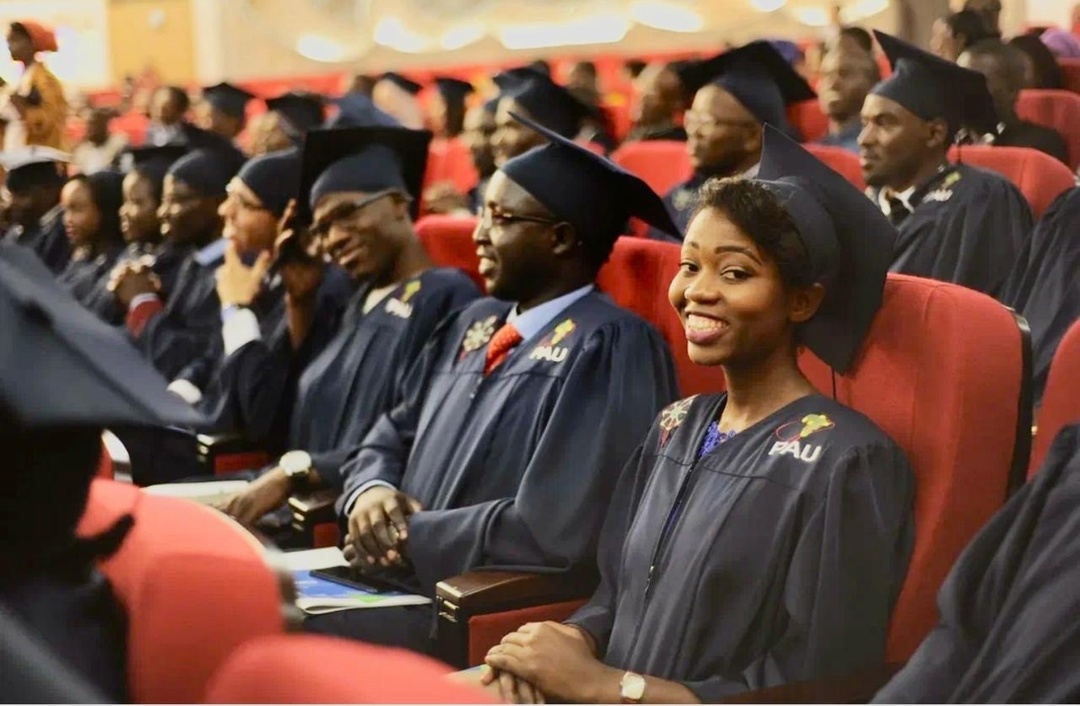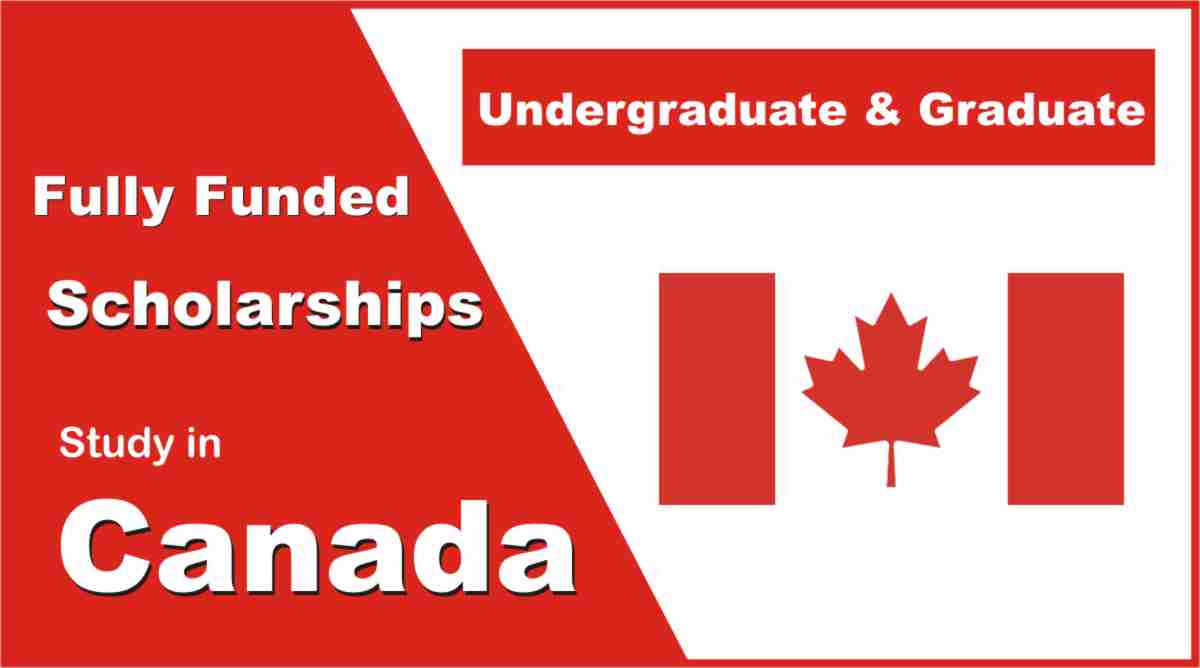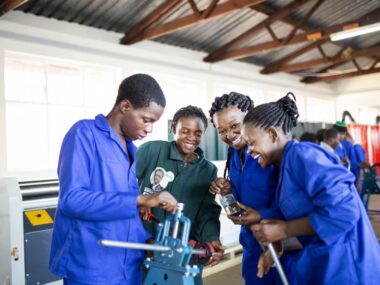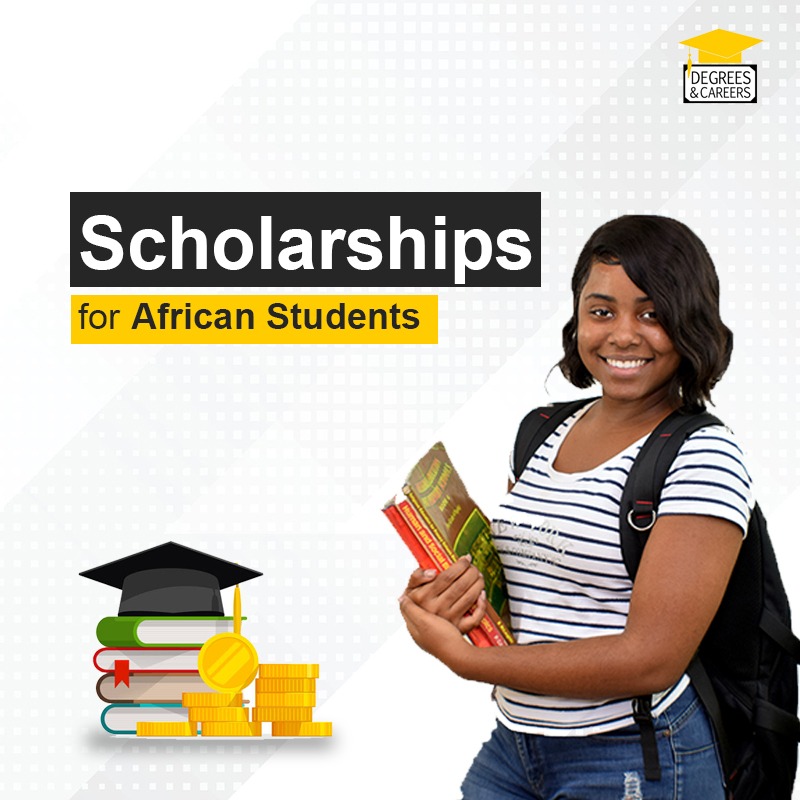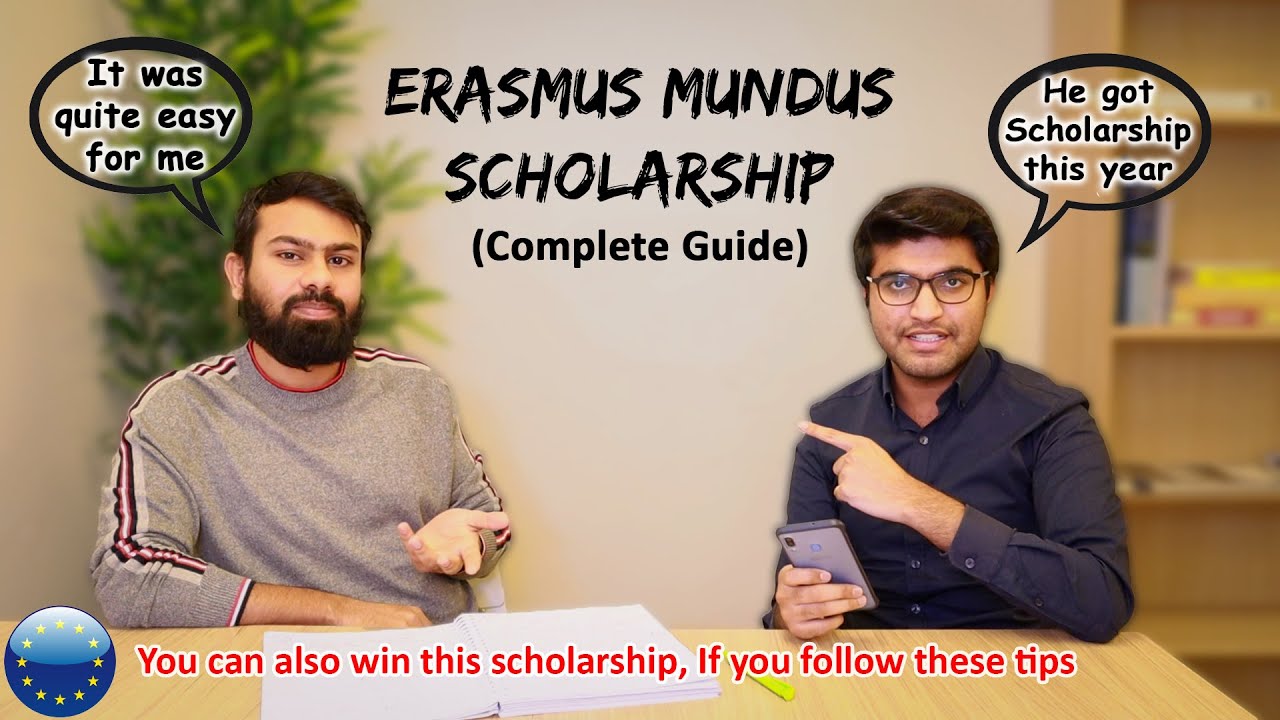Africa’s youth are poised to drive innovation in science, technology, engineering, and mathematics (STEM), addressing global challenges like climate change, healthcare, and digital transformation. However, financial barriers often hinder talented African students from accessing world-class education. Fully funded STEM scholarships for African students in 2025 offer a transformative opportunity to pursue undergraduate, master’s, or PhD degrees at top universities worldwide or within Africa, covering tuition, living expenses, travel, and more.
This comprehensive articles explores the best fully funded STEM scholarships available for African students in 2025. With detailed eligibility criteria, application steps, success stories, and direct links to scholarship programs, we’ll empower you to seize these opportunities. Whether you’re a high school senior from Nigeria, a graduate student from Kenya, or an aspiring researcher from South Africa, this article is your roadmap to a STEM career. Let’s unlock your potential!
Why STEM Scholarships Matter for African Students
STEM fields are critical to Africa’s development, with demand for skilled professionals growing rapidly. According to the African Development Bank, Africa needs 3 million new STEM jobs by 2030 to meet economic and technological demands. Yet, only 2% of African youth pursue STEM degrees due to financial constraints and limited access to quality education.
Fully funded scholarships bridge this gap, offering:
-
Comprehensive Funding: Tuition, accommodation, monthly stipends, travel allowances, and research grants.
-
Global Exposure: Study at prestigious institutions in the US, UK, Canada, Europe, Asia, or Africa.
-
Career Opportunities: Access internships, mentorship, and jobs at leading organizations like Google, Microsoft, or African tech hubs.
-
Community Impact: Skills to address local challenges, from renewable energy to disease control.
-
Diversity in STEM: Promote African representation in fields where Black students are underrepresented, with only 7% of global STEM professionals being African.
With over 500,000 African students studying abroad in 2025, a 10% increase from 2024, scholarships make STEM education accessible and empower Africa’s next generation of innovators.
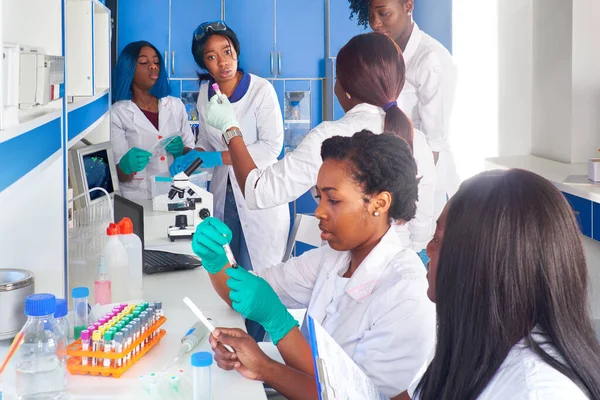
African student in a university lab, conducting a science experiment, symbolizing innovation.
Top Fully Funded STEM Scholarships for African Students 2025
Below is a curated list of fully funded STEM scholarships for African students, with direct links to application portals and key details. These programs support undergraduate, graduate, and doctoral studies, prioritizing academic excellence and leadership.
1. Mastercard Foundation Scholars Program
The Mastercard Foundation partners with universities worldwide to support African students in STEM and other fields, emphasizing leadership and community impact.
-
Eligibility: African students with a bachelor’s degree (for graduate programs) or high school diploma (for undergraduate), demonstrating financial need and leadership potential. Open to all STEM fields, including engineering, computer science, and health sciences.
-
Benefits: Full tuition, accommodation, monthly stipend, laptop, travel costs, mentorship, and internships.
-
Participating Universities: University of Toronto (Canada), University of Edinburgh (UK), Ashesi University (Ghana), and African Institute for Mathematical Sciences (AIMS, multiple African countries).
-
Deadline: Varies (e.g., December 4, 2024, for University of Toronto; January 2025 for AIMS).
-
Application Process: Apply through partner university portals with transcripts, essays, recommendation letters, and proof of financial need. No separate scholarship application required.
Success Story: Chidi from Nigeria, a Mastercard Scholar at AIMS, developed a machine learning model for malaria prediction, now implemented in rural clinics.
Watch Video: Mastercard Foundation Scholars Program Overview
2. WAAW Foundation Scholarships
The Working to Advance African Women in STEM (WAAW) Foundation offers need-based scholarships for female African students pursuing undergraduate STEM degrees at African universities.
-
Eligibility: Female African students aged 16–32, enrolled in a STEM program (e.g., computer science, engineering, mathematics) at a recognized African university, with a minimum 3.0 GPA and financial need.
-
Benefits: $500–$1,000 annually for tuition, books, and living expenses, plus mentorship and leadership training.
-
Deadline: November 30, 2024.
-
Application Process: Submit an online application with transcripts, a personal statement, two recommendation letters, and proof of enrollment via the WAAW portal.
Inspiring Quote: “The WAAW scholarship gave me confidence to pursue engineering and mentor girls in my village.” – Amina, Nigerian scholar.
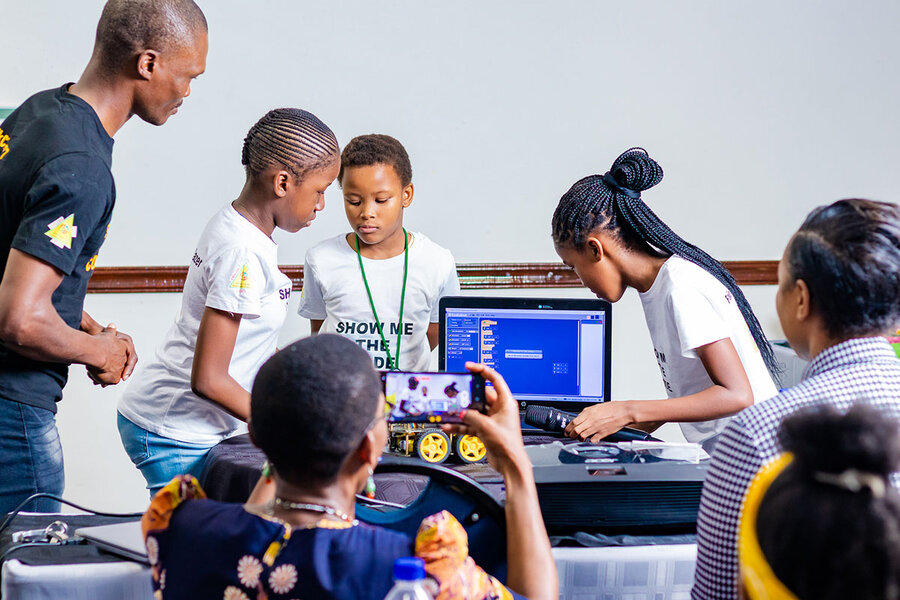
Female African student coding on a laptop, symbolizing empowerment.
3. Fund II Foundation UNCF STEM Scholars Program
This United Negro College Fund (UNCF) program supports African American and African students at US historically Black colleges and universities (HBCUs) pursuing STEM degrees.
-
Eligibility: African or African American high school seniors with a 3.0 GPA, enrolled full-time at an HBCU in fall 2025, pursuing STEM majors (e.g., biology, chemistry, computer science, engineering).
-
Benefits: Up to $25,000 annually for tuition, fees, and living costs, plus internships, mentoring, and career workshops.
-
Deadline: April 17, 2025.
-
Application Process: Apply via the UNCF portal with transcripts, a STEM teacher recommendation, essays, and FAFSA financial aid form.
Success Story: Keylen from Ghana, a UNCF STEM Scholar at Morehouse College, secured a Google internship after his sophomore year.
4. MPOWER Women in STEM Scholarship
MPOWER Financing offers scholarships for African women pursuing STEM degrees at US or Canadian universities, addressing gender inequality in STEM.
-
Eligibility: Female African students accepted or enrolled full-time in a STEM program at an accredited US or Canadian university, with a valid study permit.
-
Benefits: $5,000 (first place), $2,000 (second), or $1,000 (third) for tuition or expenses.
-
Deadline: Rolling, typically quarterly (check website for 2025 dates).
-
Application Process: Submit an online application with an essay, transcripts, and proof of enrollment via the MPOWER portal.
5. AIMS Master’s Scholarships
The African Institute for Mathematical Sciences (AIMS) offers fully funded master’s programs in mathematical sciences for African students, with campuses in South Africa, Ghana, Senegal, Cameroon, and Rwanda.
-
Eligibility: African students with a bachelor’s degree in mathematics, engineering, or related STEM fields, with strong academic records.
-
Benefits: Full tuition, accommodation, stipend, travel costs, and research support.
-
Deadline: March 31, 2025 (varies by campus).
-
Application Process: Apply online with transcripts, CV, recommendation letters, and a personal statement via the AIMS portal.
-
Link: AIMS Master’s Scholarships
Watch Video: AIMS Scholarship Experience
6. Australia Awards Africa
Funded by the Australian government, this program supports African students pursuing STEM master’s degrees or short-term training in Australia.
-
Eligibility: African professionals with a bachelor’s degree, 2–3 years of work experience, and a commitment to contribute to Africa’s development. STEM fields like engineering, IT, and environmental science are prioritized.
-
Benefits: Full tuition, travel allowance, stipend, health insurance, and professional development.
-
Deadline: February 1, 2025.
-
Application Process: Apply via the Australia Awards portal with transcripts, CV, work experience proof, and a development impact plan.
-
Link: Australia Awards Africa
Success Story: Esther from Kenya, an Australia Awards scholar, developed a solar energy solution now powering her rural community.
7. Schlumberger Foundation Faculty for the Future Fellowships
This program supports African women pursuing PhD or post-doctoral studies in STEM at top global universities.
-
Eligibility: Female African students from developing countries, enrolled in a PhD or post-doctoral STEM program, with a commitment to return to Africa.
-
Benefits: Up to $50,000 annually for tuition, living expenses, and research, renewable for up to six years.
-
Deadline: November 8, 2024.
-
Application Process: Apply online with a research proposal, transcripts, recommendation letters, and proof of enrollment via the Schlumberger portal.
Inspiring Quote: “This fellowship allowed me to research renewable energy and inspire girls in STEM.” – Fatou, Senegalese scholar.
8. Blacks at Microsoft Scholarship
Microsoft offers scholarships for African and African American students pursuing STEM degrees in the US, focusing on technology fields.
-
Eligibility: African or African American high school seniors with a 3.0 GPA, accepted into a four-year US university for STEM majors (e.g., computer science, engineering).
-
Benefits: $5,000 (five winners, renewable for three years) or $2,500 (45 one-time awards) for tuition and fees.
-
Deadline: March 15, 2025.
-
Application Process: Apply via the Microsoft portal with transcripts, essays, recommendation letters, and financial need proof.
9. African American Leadership Society (AALS) STEM Scholarship
This program supports African American students in Virginia’s Hampton Roads region pursuing STEM degrees.
-
Eligibility: African American high school seniors or college students with a 3.0 GPA, residents of Hampton Roads, enrolled in a STEM program.
-
Benefits: Up to $10,000 for tuition, plus mentorship from STEM professionals.
-
Deadline: Varies (check website for 2025 updates).
-
Application Process: Apply online with transcripts, a personal statement, and recommendation letters via the AALS portal.
-
Link: AALS STEM Scholarship
Success Story: Tunde from Norfolk, an AALS scholar, is now a civil engineer designing sustainable infrastructure.
10. Women Techmakers Scholars Program
Google’s Women Techmakers program supports African women in computer science and related STEM fields globally.
-
Eligibility: Female African students enrolled in undergraduate or graduate STEM programs (e.g., computer science, engineering) at accredited universities.
-
Benefits: $10,000 (US/Canada) or equivalent for tuition, plus networking and mentorship.
-
Deadline: December 2024 (TBA).
-
Application Process: Apply via the Google portal with transcripts, CV, essays, and recommendation letters.
YouTube Video: Women Techmakers Scholarship Experience
How to Apply: A Step-by-Step Guide
Applying for STEM scholarships requires strategic planning. Follow these steps to maximize your chances:
-
Research Opportunities: Explore platforms like Scholars4Dev, AfterSchoolAfrica, and university websites. Use links above to find specific programs.
-
Verify Eligibility: Ensure you meet academic (e.g., 3.0 GPA), nationality, and field requirements. Check for gender-specific or regional criteria.
-
Prepare Documents:
-
Academic transcripts and degree certificates (translated into English if needed).
-
CV highlighting STEM projects, internships, or leadership.
-
Motivation letter (1–2 pages) explaining your passion for STEM and career goals.
-
Two–three recommendation letters from STEM teachers or mentors.
-
Passport copy and proof of financial need (e.g., FAFSA or income statements).
-
English proficiency test (IELTS, TOEFL, or university waiver for English-medium schooling).
-
-
Apply to Universities: Many scholarships require admission to a partner institution. Submit university applications early (e.g., October 2024 for US/Canada).
-
Complete Scholarship Applications: Use program-specific portals (e.g., Mastercard, AIMS). Submit all documents in PDF format and check size limits.
-
Prepare for Interviews: Practice discussing your STEM goals and community impact. Some programs, like Schlumberger, include interviews.
-
Track Deadlines: Create a calendar with deadlines (e.g., November 2024 for WAAW, March 2025 for AIMS). Submit early to avoid technical issues.
Tips to Make Your Application Stand Out
With thousands of applicants, a compelling application is key. Here’s how to shine:
-
Craft a Personal Narrative: Share a story that reflects your STEM passion, e.g., “Building a solar panel for my village sparked my engineering dream.”
-
Highlight Impact: Quantify achievements, like “Developed a mobile app used by 500 students.”
-
Tailor Your Motivation Letter: Align with the scholarship’s mission, e.g., community development for Mastercard or gender equality for WAAW.
-
Secure Strong References: Choose STEM mentors who can provide specific examples of your skills.
-
Showcase Community Involvement: Highlight projects like STEM workshops or environmental initiatives.
-
Prepare Without IELTS: Many programs accept university proficiency letters or Duolingo tests.
-
Proofread: Use Grammarly or mentors to ensure error-free applications.
Inspiring Quote: “My application showed my journey from a rural school to a global STEM scholar.” – Nia, Mastercard Scholar from Uganda.
Challenges and How to Overcome Them
Applying for scholarships can be daunting. Here’s how to tackle common obstacles:
-
High Competition: Emphasize unique experiences, like community STEM projects, to stand out.
-
Language Requirements: Prepare for IELTS/TOEFL early or seek programs with waivers (e.g., AIMS, University of Alberta).
-
Financial Documentation: Obtain proof of need promptly via universities or local authorities.
-
Complex Applications: Break tasks into steps and contact program coordinators for clarification.
-
Rejections: Use feedback to improve and apply to multiple programs to increase chances.
Watch Video: Overcoming Scholarship Application Challenges
Impact of STEM Scholarships on African Students
These scholarships transform lives and communities:
-
Innovation: Scholars develop solutions like AI for healthcare or renewable energy systems.
-
Economic Growth: Graduates fill Africa’s 3 million STEM job gap, boosting industries.
-
Gender Equity: Programs like WAAW and Schlumberger increase female representation, with women earning only 22% of STEM degrees in Africa.
-
Global Leadership: Alumni work at organizations like the UN, African Union, or tech giants.
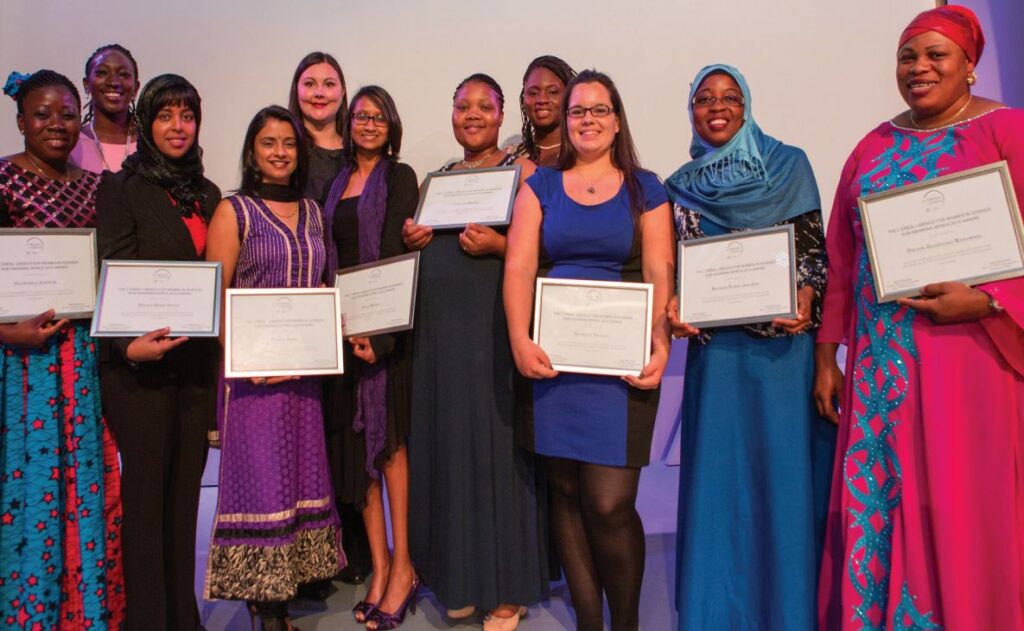 African scholar presenting at a global STEM conference, symbolizing impact.
African scholar presenting at a global STEM conference, symbolizing impact.
Frequently Asked Questions (FAQs)
1. What is a fully funded STEM scholarship?
Covers tuition, living expenses, travel, and other costs for STEM studies.
2. Who is eligible?
African students with strong academics, often requiring a 3.0 GPA, financial need, or leadership skills. Some are gender-specific.
3. Can I apply without IELTS?
Yes, programs like AIMS or WAAW accept university proficiency letters or alternatives like Duolingo.
4. How do I find scholarships?
Use platforms like AfterSchoolAfrica, Scholars4Dev, or links above. Follow scholarship organizations on social media.
5. What documents are needed?
Transcripts, CV, motivation letter, recommendation letters, passport, and sometimes financial need proof.
6. Can I apply for multiple scholarships?
Yes, but tailor each application to the program’s requirements.
7. What are the deadlines?
Vary (e.g., November 2024 for WAAW, April 2025 for UNCF). Check program websites.
8. What if I’m waitlisted?
You may be offered a scholarship if others withdraw or invited to self-fund.
Call to Action
Your STEM journey starts now! Explore fully funded scholarships for African students in 2025 via the links above. Visit AfterSchoolAfrica, Scholars4Dev, and program portals like Mastercard Foundation or AIMS. Prepare your documents, apply early, and share this guide with friends. Join STEM networks like the African Women in Science Association for mentorship. Your dream of becoming a global STEM leader is within reach—apply today!
Conclusion
Fully funded STEM scholarships for African students in 2025 are gateways to academic excellence, innovation, and global impact. From the Mastercard Foundation to WAAW and AIMS, these programs empower you to study at top universities, develop cutting-edge solutions, and lead Africa’s STEM revolution. With thorough preparation, compelling applications, and perseverance, you can secure a scholarship that transforms your life and community. Start today—your future in STEM awaits!
